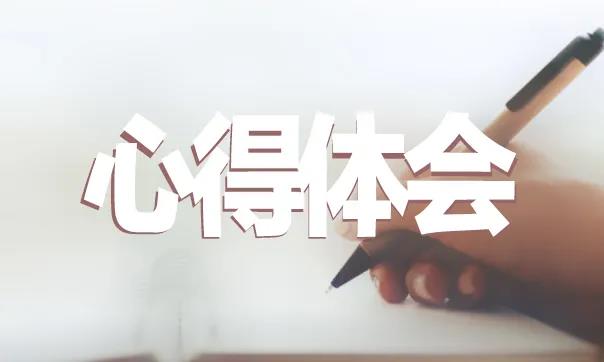下面是小编为大家整理的TED英语演讲:如何在你重视事情上做更好,供大家参考。

努力工作却无长进?你不是唯一的一个。不管是关于工作,为人父母还是兴趣爱好,教育管理者Eduardo Brice?o向你揭示了一个如何做好现行事情的易行办法。下面是小编为大家收集关于TED英语演讲:你重视的事情做好了吗,欢迎借鉴参考。
演说题目:如何在你重视的事情上做的更好!
演说者:Eduardo Brice?o
Most of us go through life trying to do our best at whatever we do,whether its our job, family, schoolor anything else.I feel that way. I try my best.But some time ago, I came to a realizationthat I wasnt getting much better at the things I cared most about,whether it was being a husband or a friendor a professional or teammate,and I wasnt improving much at those thingseven though I was spending a lot of timeworking hard at them.Ive since realized from conversations Ive had and from researchthat this stagnation, despite hard work,turns out to be pretty common.
大多数人在生活中都会尝试把每件事做到最好,无论是在职场上、家庭、学校或其它领域。我也有同感,也会努力尝试。但前一段时间,我开始意识到,我总是无法在自己最在意的事情上做得更好。比如做一个好丈夫或好朋友,一名专业人士或好队友,我一直无法在这些事情上有很大的提升,哪怕我花了很多时间努力完成。我之后在与他人的谈话和研究中意识到,无论你多努力,这种瓶颈总是一直出现。
So Id like to share with you some insights into why that isand what we can all do about it.What Ive learnedis that the most effective peopleand teams in any domaindo something we can all emulate.They go through life deliberately alternating between two zones:the learning zone and the performance zone.
所以我想跟各位分享一些见解,并提出一些解决的办法。我所了解的是,无论哪个领域,各行业的佼佼者都有可以让我们仿效的地方。我发现,他们在日常生活中会有意识地在这两种状态中切换,学习状态和执行状态,
The learning zone is when our goal is to improve.Then we do activities designed for improvement,concentrating on what we havent mastered yet,which means we have to expect to make mistakes,knowing that we will learn from them.That is very different from what we do when were in our performance zone,which is when our goal is to do something as best as we can, to execute.Then we concentrate on what we have already masteredand we try to minimize mistakes.
在学习状态,我们的技能可以进步。我们会透过设计过的活动来提升技能。专注于尚未掌握的事情,这意味着我们一定会有失误,但我们也一定能从中学到东西。这跟我们执行状态时所做的事情很不一样,执行状态的目的是把我们最好的一面表现出来。我们会专注在已经掌握好的技能,并把失误减到最小。
Both of these zones should be part of our lives,but being clear about when we want to be in each of them,with what goal, focus and expectations,helps us better perform and better improve.The performance zone maximizes our immediate performance,while the learning zone maximizes our growthand our future performance.The reason many of us dont improve muchdespite our hard workis that we tend to spend almost all of our time in the performance zone.This hinders our growth,and ironically, over the long term,also our performance.
这两种状态都是我们生活的一部分,但当你想要自在的处在这两种状态,你得清楚知道你的目标、关注点、预期效果是什么,这样才能帮助你在执行和改进方面都做得更好。执行状态注重当下的表现,学习状态会加速人的成长,并且提升未来的表现。很多人,无论如何努力都没办法有所提高。原因在于:我们总是花费太多时间在执行状态。这样会阻碍成长。讽刺的是,长时间下来,也会引响我们的表现。
So what does the learning zone look like?Take Demosthenes, a political leaderand the greatest orator and lawyer in ancient Greece.To become great,he didnt spend all his timejust being an orator or a lawyer,which would be his performance zone.But instead, he did activities designed for improvement.Of course, he studied a lot.He studied law and philosophy with guidance from mentors,but he also realized that being a lawyer involved persuading other people,so he also studied great speechesand acting.To get rid of an odd habit he had of involuntarily lifting his shoulder,he practiced his speeches in front of a mirror,and he suspended a sword from the ceilingso that if he raised his shoulder,it would hurt.
那麽,学习状态是怎样的情况?来看看狄摩西尼,这位政治领袖,古希腊最伟大的演说家和律师。他会伟大的原因,不是因为他把时间都花在演说和执行律师业务上面,也就是说他不会一直处在执行状态。相反的,他做了很多改善的活动。毋庸置疑,他花很多时间在学习。比如他在精神导师的指导下学习法律及哲学,但他也同时意识到,作为律师他需要说服别人,所以他也研究名人的演讲及学习演戏。为了改变不由自主耸肩的坏习惯,他会在镜子前练习演说,并且在天花板上吊一把剑。一旦耸肩,他就会被刺到。
(Laughter)
(观众笑)
To speak more clearly despite a lisp,he went through his speeches with stones in his mouth.He built an underground roomwhere he could practice without interruptionsand not disturb other people.And since courts at the time were very noisy,he also practiced by the ocean,projecting his voice above the roar of the waves.
为了克服口齿不清,他会含着石头练习演讲。他还建了一个地下室,以避免练习时被打扰或打扰到别人。因为上法院时会很吵,所以他就对着大海练习,让自己的声音比咆哮的海浪还大声。
His activities in the learning zonewere very different from his activities in court,his performance zone.In the learning zone,he did what Dr. Anders Ericsson calls deliberate practice.This involves breaking down abilities into component skills,being clear about what subskill were working to improve,like keeping our shoulders down,giving full concentration to a high level of challengeoutside our comfort zone,just beyond what we can currently do,using frequent feedback with repetition and adjustments,and ideally engaging the guidance of a skilled coach,because activities designed for improvementare domain-specific,and great teachers and coaches know what those activities areand can also give us expert feedback.It is this type of practice in the learning zonewhich leads to substantial improvement,not just time on task performing.For example, research shows that after the first couple of yearsworking in a profession,performance usually plateaus.This has been shown to be true in teaching, general medicine,nursing and other fields,and it happens because once we think we have become good enough,adequate,then we stop spending time in the learning zone.We focus all our time on just doing our job,performing,which turns out not to be a great way to improve.But the people who continue to spend time in the learning zonedo continue to always improve.The best salespeople at least once a weekdo activities with the goal of improvement.They read to extend their knowledge,consult with colleagues or domain experts,try out new strategies,solicit feedback and reflect.The best chess playersspend a lot of time not playing games of chess,which would be their performance zone,but trying to predict the moves grand masters made and analyzing them.Each of us has probably spent many, many, many hourstyping on a computerwithout getting faster,but if we spent 10 to 20 minutes each dayfully concentrating on typing 10 to 20 percent fasterthan our current reliable speed,we would get faster,especially if we also identified what mistakes were makingand practiced typing those words.Thats deliberate practice.
他在学习状态所做的活动与他在法院上执行的活动,两者是很不一样的。他在学习状态时,会做安德森爱立信博士所说的「循序渐进的练习」。就是把要学习的技能拆分成一小段一小段的技能,并且清楚地知道哪一项技巧目前需要提高。像是放松肩膀,全新专注在舒适圈以外更高层次的挑战,专注超越那些早已掌握的事物。利用快速反馈做重复练习和调整,全力配合熟手教练的指导。因为,为改善而设计的活动是有特定范围的,好的老师或教练知道什么活动能带来进步,并会给予专业的反馈。就是在这种学习状态下的练习,才能大量的进步,而不是只是花时间在执行业务上。举个例子,研究表明,在某一领域工作数年后,表现会达到停滞期。这在教学、一般内科、护理及其他领域都得到了印证。这是因为一旦人们觉得自己足够好了,绰绰有余了,就不会再花时间学习。我们只会关注在如何完成工作和执行业务上,这种方式变得不利于提高技能。但是那些一直在学习的人们,就会持续地成长。最好的销售人员,至少每周一次,进行改善训练。他们阅读以增长知识,咨询同行和专家、尝试新的策略、征询意见及反思。最好的棋手,大部分的时间,并不是在跟别人下棋,也就是他们不会一直处在执行的状态,而是试图预测并分析大师们的棋路。每个人可能都花了很多时间在电脑前打字,但却没有越打越快。但是,如果我们每天抽出 10-20 分钟,全神贯注地提升打字速度,比平常快上 10%-20% 就好,我们的速度就会越来越快。特别是当我们能找到失误,并且专注加以练习。这就是一种循序渐进(刻意)的练习。
In what other parts of our lives,perhaps that we care more about,are we working hard but not improving muchbecause were always in the performance zone?Now, this is not to say that the performance zone has no value.It very much does.When I needed a knee surgery,I didnt tell the surgeon,Poke around in there and focus on what you dont know.
在生活的其他方面,还有哪些是我们比较在意,我们很努力但进步缓慢的地方?是不是因为我们老是停留在执行状态里?但以上都不是在说执行状态没有用,它是很有价值的。但我需要做膝盖手术的时候,我可不想告诉医师:「随便戳戳吧,探索一下你不知道的事。」
(Laughter)
(观众笑)
Well learn from your mistakes!I looked for a surgeon who I felt would do a good job,and I wanted her to do a good job.Being in the performance zoneallows us to get things done as best as we can.It can also be motivating,and it provides us with information to identify what to focus on nextwhen we go back to the learning zone.So the way to high performanceis to alternate between the learning zone and the performance zone,purposefully building our skills in the learning zone,then applying those skills in the performance zone.
「我们可以从失误中学到东西啊!」我会找一位我认为够好的医师,我想让她好好地帮我医治。在执行状态时,我们会力求表现到最好,这样可以激励我们,并告诉我们,在回到学习状态的时候,该关注些什么。所以说,想要表现得好需要在学习状态和执行状态之间转换。在学习状态下有目的性地积累技巧,然后再将之应用在执行状态里。
When Beyonc is on tour,during the concert,shes in her performance zone,but every night when she gets back to the hotel room,she goes right back into her learning zone.She watches a video of the show that just ended.She identifies opportunities for improvement,for herself, her dancers and her camera staff.And the next morning,everyone receives pages of notes with what to adjust,which they then work on during the day before the next performance.Its a spiralto ever-increasing capabilities,but we need to know when we seek to learn,and when we seek to perform,and while we want to spend time doing both,the more time we spend in the learning zone,the more well improve.
就像碧昂斯的巡演,演唱会上,她处在执行表演的状态,但每晚回到酒店,她就直接投入到学习状态里。她会观看刚刚结束的表演,为自己、舞群和摄像师,寻找改进的机会。第二天早上,所有人都会收到一份通知,上面写着那些地方需要改进,如此团队成员就可以在下一次表演之前做出调整。如此团队的能力就可以一直向上提升。但我们需要清楚的是,何时「学」、何时「做」,何时两样一起。投入越多时间在学习状态,就能取得越多的进步。
So how can we spend more time in the learning zone?First, we must believe and understandthat we can improve,what we call a growth mindset.Second, we must want to improve at that particular skill.There has to be a purpose we care about,because it takes time and effort.Third, we must have an idea about how to improve,what we can do to improve,not how I used to practice the guitar as a teenager,performing songs over and over again,but doing deliberate practice.And fourth, we must be in a low-stakes situation,because if mistakes are to be expected,then the consequence of making them must not be catastrophic,or even very significant.A tightrope walker doesnt practice new tricks without a net underneath,and an athlete wouldnt set out to first try a new moveduring a championship match.
那麽我们要怎样才能多花点时间在学习状态呢?首先,要相信并理解一件事,那就是我们可以改进,也就是所谓的「成长心态」。其次,要在具体的技巧上做改进。并且要有一个我们在乎的目标,因为它需要时间和努力。第三,我们必须要知道该如何提升,要做些什么来提升,而不是像我年轻时弹吉它那样,同首曲子一遍又一遍的重复,而是要做「循序渐进的练习」。第四,我们必须保持在低风险状态,因为如果如预期的发生了失误,那麽造成的后果就不会影响太大,或是关系重大。走钢丝的演员,不会在没有护网的情况下练习新的技巧;运动员并不会在冠军比赛中,尝试新的动作。
One reason that in our liveswe spend so much time in the performance zoneis that our environments often are, unnecessarily, high stakes.We create social risks for one another,even in schools which are supposed to be all about learning,and Im not talking about standardized tests.I mean that every minute of every day,many students in elementary schools through collegesfeel that if they make a mistake,others will think less of them.No wonder theyre always stressed outand not taking the risks necessary for learning.But they learn that mistakes are undesirableinadvertentlywhen teachers or parents are eager to hear just correct answersand reject mistakes rather than welcome and examine themto learn from them,or when we look for narrow responsesrather than encourage more exploratory thinkingthat we can all learn from.When all homework or student work has a number or a letter on it,and counts towards a final grade,rather than being used for practice,mistakes, feedback and revision,we send the message that school is a performance zone.
我们在生活中,花很多时间在执行状态里,这个中原因是:我们常常处在不必要的高风险环境中。我们彼此制造了社会风险。哪怕是在学校,一个被认定为纯粹学习的地方,我不是在说标准测验,我说的是学生每时每刻、从小学到大学,都会觉得别人会因为他们犯错而轻视他们。难怪他们总是紧张兮兮,不愿为学习冒必要的风险。老师、家长对正确答案趋之若鹜的态度,无意中,让学生害怕犯错。而不是勇于试错、检视过错、并从中吸取教训。又或者,我们只想听「标准答案」,而不是鼓励学生进行可以学到更多的开拓性思考。一旦学生的作业、作品都被评定等级、标上分数,最后记录到期末成绩后,它们就起不到练习、试错、反馈和修正的作用了,我们让孩子误以为:学校只是个让你表现的地方。
The same is true in our workplaces.In the companies I consult with,I often see flawless execution cultureswhich leaders foster to encourage great work.But that leads employees to stay within what they knowand not try new things,so companies struggle to innovate and improve,and they fall behind.
职场中也同样如此。那些咨询我的公司,我常见到领导者鼓励推动「完美执行 」的文化。但这样就会导致员工仅仅停留在他们已知的范畴,而不去尝试新的事物,公司因此很难创新、进步,从而落居下风。
We can create more spaces for growthby starting conversations with one anotherabout when we want to be in each zone.What do we want to get better at and how?And when do we want to execute and minimize mistakes?That way, we gain clarity about what success is,when, and how to best support one another.
我们可以透过交流,为彼此开创进步的空间,聊聊我们何时应该投身于何种状态。在哪些方面可以做得更好?何时决策、怎样控损?如此,我们可以明确什么是成功、何时以及如何去支持对方。
But what if we find ourselves in a chronic high-stakes settingand we feel we cant start those conversations yet?Then here are three things that we can still do as individuals.First, we can create low-stakes islands in an otherwise high-stakes sea.These are spaces where mistakes have little consequence.For example, we might find a mentor or a trusted colleaguewith whom we can exchange ideas or have vulnerable conversationsor even role-play.Or we can ask for feedback-oriented meetings as projects progress.Or we can set aside time to read or watch videos or take online courses.Those are just some examples.Second, we can execute and perform as were expected,but then reflect on what we could do better next time,like Beyonc does,and we can observe and emulate experts.The observation, reflection and adjustment is a learning zone.And finally, we can leadand lower the stakes for others by sharing what we want to get better at,by asking questions about what we dont know,by soliciting feedback and by sharing our mistakesand what weve learned from them,so that others can feel safe to do the same.
但如果我们处在长期高风险状态下,并且无法展开这样的交流怎么办?依然有三件事是可以自己着手去做的。首先,是在高风险的海洋中,开辟一块低风险的岛屿。让错误发生时不会造成严重的后果。比如说,我们可以找一位导师或可以信任的同事,和他们分享想法,或是接受批评。甚至角色扮演。或者是随着项目的进展,举办反馈会议。又或者我们可以抽出时间去阅读或看视频或是参加线上课程。这只是几个例子。第二,我们可以实践并达成期望的表现,但事后反思如何改进,就像碧昂斯那样。我们还可以观察和模仿专家,这些观察、反思、调整都能让我们学习到很多。最后,我们可以引导并降低彼此的风险,问他们,我们在哪方面可以再取得进步,透过询问未知的问题、征求意见、 分享失误,并从中汲取教训,如此其他人也就能安心地做同样的事。
Real confidence is about modeling ongoing learning.What if, instead of spending our lives doing, doing, doing,performing, performing, performing,we spent more time exploring,asking,listening,experimenting, reflecting,striving and becoming?What if we each always had somethingwe were working to improve?What if we created more low-stakes islandsand waters?And what if we got clear,within ourselves and with our teammates,about when we seek to learn and when we seek to perform,so that our efforts can become more consequential,our improvement never-endingand our best even better?
真正的自信是对不断学习的展示。如果,我们没有把人生耗费在做、做、做、表现、表现、表现上,而是更多地去探索、询问、倾听、实践、反思、拼命去成为想成为的人,会怎么样?如果我们每个人,都有某些事情让我们可为之努力,从而提升呢?如果我们创造更多的低风险区域和环境呢?如果我们自己或整个团队都清楚知道,何时学习、何时表现,如此我们的努力就会有更多回报,就可以精益求精,团队就会越来越好。
Thank you.
谢谢。
推荐访问:TED英语演讲:如何在你重视事情上做更好 上做 重视 更好





